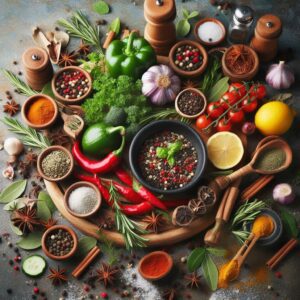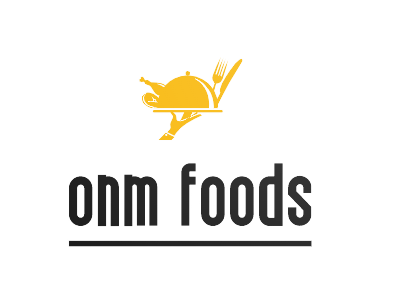Introduction.
In the realm of culinary exploration, discovering and savoring plant-based recipes can be both a delightful adventure and a nutritional journey. This comprehensive guide aims to inspire and guide you on your quest for new and exciting vegan dishes while shedding light on the essential nutritional aspects of a plant-based diet. Let’s dive into the vibrant world of plant-powered delights and uncover the wealth of flavors and nutrients awaiting your exploration.

Section 1: The Pleasures of Plant-Based Cooking
1.1 Expanding Your Culinary Horizon
Embark on a journey of culinary discovery by expanding your repertoire of plant-based recipes. Explore the versatility of fruits, vegetables, grains, legumes, and plant-based proteins as you experiment with new and exciting flavors.
1.2 Diverse Cuisine Inspirations
Draw inspiration from diverse cuisines around the world that inherently celebrate plant-based ingredients. Whether it’s the vibrant colors of Mediterranean salads, the spice-infused dishes of Indian cuisine, or the freshness of Asian stir-fries, each culture offers a rich tapestry of plant-based culinary traditions.
1.3 Creative Cooking Techniques
Learn and experiment with creative cooking techniques that elevate plant-based ingredients. From roasting and grilling to sautéing and steaming, these methods bring out the natural flavors and textures of plant-based foods, turning your kitchen into a playground of possibilities.
Section 2: Unveiling the Nutritional Aspects of a Vegan Diet
2.1 Meeting Essential Nutrient Needs
Understand the key nutrients that are essential for a balanced vegan diet. Explore plant-based sources of protein, iron, calcium, omega-3 fatty acids, and vitamin B12, ensuring that your meals are not only delicious but also nutritionally complete.
2.2 Protein-Rich Plant Foods
Discover a myriad of protein-rich plant foods that form the backbone of a vegan diet. From legumes like chickpeas and lentils to tofu, tempeh, and quinoa, explore diverse sources of plant-based proteins that contribute to muscle maintenance and overall well-being.
2.3 Harnessing the Power of Whole Grains
Whole grains are nutritional powerhouses, providing essential nutrients and fiber. Dive into the world of quinoa, brown rice, farro, and barley, discovering their unique flavors and nutritional benefits as you incorporate them into your plant-based meals.
2.4 Navigating Omega-3 Sources
Explore plant-based sources of omega-3 fatty acids, vital for heart health and cognitive function. Chia seeds, flaxseeds, hemp seeds, and walnuts are excellent additions to your vegan pantry, offering a wealth of omega-3 goodness.
2.5 Vitamin-Rich Plant Foods
Unlock the nutritional potential of plant foods rich in vitamins. From vitamin C-packed citrus fruits to vitamin K-rich leafy greens, understand how a diverse array of vegan-based ingredients can contribute to your overall health and vitality.
Section 3: Crafting Flavorful and Nutrient-Dense Vegan Recipes
3.1 Hearty Lentil and Vegetable Stew
Experience the comfort of a hearty lentil and vegetable stew. Packed with vegan-based protein, fiber, and an array of colorful vegetables, this stew is a nutritious and satisfying meal for any occasion.
3.2 Quinoa and Black Bean Burrito Bowl
Indulge in the vibrant flavors of a quinoa and black bean burrito bowl. This nutrient-dense dish combines protein-rich quinoa and black beans with an assortment of fresh vegetables, guacamole, and salsa for a fiesta of flavors.
3.3 Roasted Vegetable and Hummus Wrap
Savor the simplicity of a roasted vegetable and hummus wrap. Roasted veggies like bell peppers, zucchini, and eggplant combine with creamy hummus, creating a delicious and portable meal that’s rich in flavor and nutrition.
3.4 Chickpea and Spinach Coconut Curry
Delight in the aromatic spices of a chickpea and spinach coconut curry. This flavorful dish showcases the versatility of chickpeas, offering a dose of vegan-based protein, iron, and a medley of vitamins and minerals.
Section 4: Embracing Nutritional Diversity in a Vegan Lifestyle
4.1 Supplements for Nutritional Gaps
Understand the role of supplements in filling potential nutritional gaps in a vegan diet. Vitamin B12 and vitamin D are common supplements recommended for those following a vegan-based lifestyle, ensuring comprehensive nutritional support.
4.2 Balanced Meal Planning
Master the art of balanced meal planning to ensure that your vegan diet encompasses a wide variety of nutrients. Explore the concept of the vegan plate, featuring a colorful array of vegetables, whole grains, vegan-based proteins, and healthy fats.
4.3 Mindful Eating Habits
Cultivate mindful eating habits to enhance your connection with food. Savoring each bite, practicing portion control, and being attuned to your body’s hunger and fullness cues contribute to a holistic and nourishing vegan lifestyle.

Conclusion: A Journey of Flavor and Wellness
In conclusion, embracing new plant-based recipes and understanding the nutritional aspects of a vegan diet is not just a culinary exploration; it’s a journey of flavor and wellness. As you delve into diverse cuisines, creative cooking techniques, and nutrient-dense recipes, you nourish both your palate and your body. May this guide inspire you to revel in the pleasures of plant-powered cooking, creating a harmonious relationship between your taste buds and your health.

The Latest Tips and News from Industry to Your Inbox
Subscribe now to stay in the know! Get the latest tips and news from the industry delivered directly to your inbox. Don’t miss out on the valuable insights and updates that can help you stay ahead in your field.

